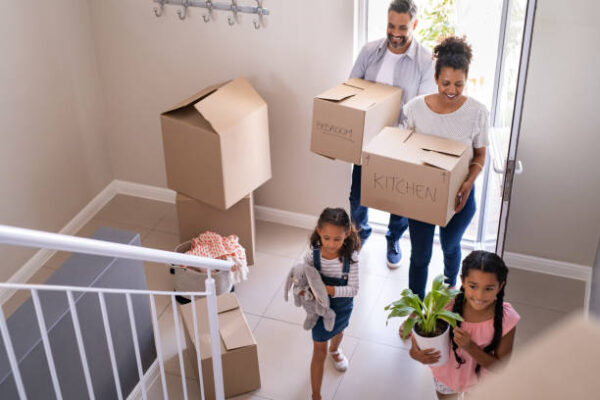Long Distance Moving Packages Starting @ $1899!
What To Research When Moving To A New State
Are you considering a move to a new state? Check out this guide for what to research before making the big decision.
Is There A Checklist Before Moving New State?
There's a lot to do when moving to a new state. To help you keep track of everything, here's a checklist of things to do before, during, and after your move.
1. Make a list of all the things you need to do in order to prepare for your move. This includes packing, arranging for transportation, and transferring your utilities.
2. Start researching your new state. This includes things like finding a place to live, getting a job, and registering your vehicle.
3. Make a budget for your move. This will help you stay on track and avoid overspending.
4. Start packing early. This will help you avoid last-minute stress and ensure that everything is packed properly.
5. Arrange for transportation. If you're driving to your new state, make sure you have a reliable vehicle and enough gas money for the trip. If you're flying, book your tickets as early as possible to get the best deals.
6. Transfer your utilities. Call your current utility providers and let them know you're moving. They'll be able to help you transfer your service to your new address.
What Should I Do 7 Days Before Moving?
The week before you move, start packing up your belongings. Begin with items that you won't need in the days leading up to the move, such as out-of-season clothing and decorations. If possible, try to pack one room at a time so that you don't get overwhelmed.
In addition to packing, there are a few other things you should do in the week leading up to your move:
1. Create a packing schedule. This will help you stay on track and avoid last-minute scrambling.
2. Arrange for transportation. If you're driving to your new state, make sure your vehicle is in good working order and that you have enough gas money for the trip. If you're flying, book your tickets as early as possible to get the best deals.
3. Transfer your utilities. Call your current utility providers and let them know you're moving. They'll be able to help you transfer your service to your new address.
4. Start cleaning out your fridge and pantry. This will help you avoid having to throw away food that will go bad during the move.
5. Pack a suitcase of essentials. This should include things like clothes, toiletries, and medications that you'll need in the days immediately following the move.
By following this checklist, you can make sure that you're prepared for your move and that everything goes smoothly.

Is There A Checklist For After Moving New State?
1. Get settled into your new home. This includes unpacking, getting familiar with your new surroundings, and establishing a routine.
2. Start exploring your new state. This includes things like visiting local attractions, trying new restaurants, and attending community events.
3. Get involved in your community. This can include things like volunteering, joining a club or organization, or simply getting to know your neighbors.
4. Register to vote in your new state. This will ensure that you have a say in the elections that impact your community.
5. Update your driver's license and vehicle registration. This is important for both legal and safety reasons.
Moving to a new state can be both exciting and overwhelming. By following this checklist, you can make sure that you're prepared for everything that comes your way.

What Should I Do On Moving Day?
On moving day, there are a few things you need to do to make sure everything goes smoothly. First, double-check that all of your belongings are packed and ready to go. Then, do a final walk-through of your old home to make sure you haven't forgotten anything.
How To Load Truck Fast
When it's time to load up the moving truck, be sure to pack it in an efficient way. Start with heavy items such as furniture, and then fill in the gaps with smaller boxes. Make sure to secure all of your belongings so they don't shift during transit.
Looking for Movers? Get A Quote!
What People Say About Us

“Long Distance Out of State Moving is the best interstate moving broker in the US.”
Tony Gonzalez
“Amazing service. 10/10 would recommend Long Distance Out of State Moving!!”
Eddy
“Between their honest recommendations, and affordable services, I don't know what to rate higher. 5 Stars!”
Jamen
Need Help With Your Long Distance Move? Contact Us Any Time
We will get back to you as soon as possible
Please try again later

Out of State Long Distance Moving, LLC, is not a motor carrier and will not transport an individual shipper's household goods, but will coordinate and arrange for the transportation of household goods by an FMCSA authorized motor carrier, whose charges will be determined by its published tariff. All estimated charges and final actual charges will be based upon the carrier's tariff which is available for inspection from the carrier upon reasonable request.

